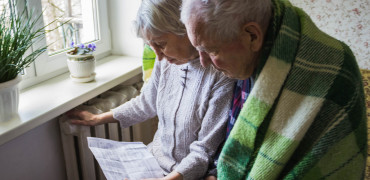If you’ve been paying attention to the news recently and especially stories about carbon reduction targets and the build-up to COP26 in Glasgow, you can’t have missed mention of heat pumps.
There has been good, bad and uninformed comment but the main message is clear: Heat pumps are here now, and they offer a viable solution to heating our homes in a low carbon way that will help tackle climate change.
And the country really needs to find a way to decarbonise society, if we are to get anywhere near the ambitious targets for carbon reduction that the government has signed up to.
The UK was the first major country to make it law that greenhouse gas emissions will be net-zero by 2050. When you consider 15% of our total emissions comes from heating out homes, it’s easy to see why this is a major focus.
To help achieve this, the government has announced that it is banning gas and oil-fired boilers in all new build homes from 2025.
And this is where heat pumps can really help!
“Hydrogen? Well, we simply don’t have the time to wait around”
Objective and fair-minded
The Observer ran an article by their energy correspondent, Jillian Ambrose on 15th August under the headline “Warmth from the earth and air: could heat pumps replace our gas boilers?”
The two-page spread in a major Sunday newspaper is one of the first I’ve seen that tried to tackle this subject in an objective, fair-minded way.
And in my role as Vice Chairman of the Heat Pump Association (HPA) you can bet I’ve been following coverage of heat pumps for quite a while.
It’s also worth remembering that the gas and oil lobby are fighting hard to show that they can remain viable in a low carbon economy and heat pumps are a real threat to their dominance in the heating industry.
It’s also worth noting those parties pushing Hydrogen as part of the solution, who also seem to be running an ‘anti-heat pump’ message.
Yet there remain questions about the carbon intensive production needed for this hydrogen technology and, if it can work on the scale needed, it’s at least 10 years away – well we simply don’t have the time to wait around.
Stumbling blocks
The Observer article talks honestly about the higher costs of heat pumps compared to gas boilers and mentions the need to train up to 40,000 installers, but it also challenges the myths that heat pumps won’t work in older homes.
Jillian Ambrose focuses on what she sees as the three main stumbling blocks that are stopping heat pumps becoming mainstream: The upfront costs; the low levels of insulation in UK homes; and bad press from faulty or low-quality installations.
In the second part of her article, she interviews four homeowners about their experience of living with a heat pump and one of them does indeed have a negative experience
Under the headline: “At home with a heat pump: It makes hot water when it’s freezing outside”, Alf Mangera from Blackburn is quoted as saying that “It was the biggest mistake I’ve made in a long time,” before explaining that his heat pump was not powerful enough to warm the house in the cold weather and that he feels like he “was given a cheap knock-off”.
Installation quality
So, let’s tackle those stumbling blocks that Jillian Ambrose mentions and start with the problem that Mr Mangera faced - Faulty or low-quality installations.
When it comes to effective use of heat pumps, of course you need to choose a quality brand first, but equally important is the design, installation, commissioning and control of the system – and this is where training is the key.
The HPA has set up a new programme to help train up to 40,000 installers each year which has been welcomed by Kwasi Kwarteng MP, The Secretary of State for Business, Energy and Industrial Strategy.
Here at Mitsubishi Electric, we’ve also introduced new, online learning to make training easier, cheaper and more accessible to everyone. This has already seen over 1,500 engineers go through the training programme in the last year alone.
The training is designed to allow them to learn at their own pace, but is still heavily focused on ensuring the highest quality of design, commissioning and installation.
A major part of the role of the installer is educating the homeowner so that they get used to the different way heat pumps work but this is also where the best systems have automated controls to ensure they work correctly right from day one.
Upfront costs
On the issue of upfront costs, heat pumps are still more expensive than gas boilers, but gas has been the dominant method of heating our homes for over 70 years and there are around 1.5 million units fitted each year.
Compare that to modern heat pumps, which have been around for just over a decade and which, last year were fitted in around 40,000 properties and you can easily see that the sooner we grow the number of installers and produce ten times more heat pumps a year, then the costs will come down for installation.
But even before installation prices start to drop, there is one area where heat pumps win hands down, and that is over oil heating.
The Observer article also quotes homeowner John Deed who switched to an Ecodan heat pump for their 1970’s 4-bed home when their 25-year-old oil boiler was “on its last legs”.
Installation costs for electric heat pumps are comparable or even lower than a new oil boiler and the running costs offer a serious reduction in annual bills over oil.
Add in the removal of a messy oil tank in your garden, the risk of theft in rural areas, and the volatility of both oil price and deliveries, and there really isn’t an argument anymore.
Insulation
The final barrier mentioned in the article is the low levels of insulation in many of the millions of existing UK homes.
Whilst it’s true that a heat pump will work most effectively in a highly insulated property, they can work well in even the most basic of homes.
Heat pumps can also work alongside an existing gas or oil boiler with the intelligent control system able to work out when to switch over from the heat pump to the other system, should it prove more efficient to run.
So, regardless of any plans the government may or may not have to help improve insulation in homes, heat pumps do offer a viable alternative to the carbon-intensive systems that really are ‘costing us the earth’.
Max Halliwell is Communications Manager for Renewable Heating and also Vice Chair of the Heat Pump Association



